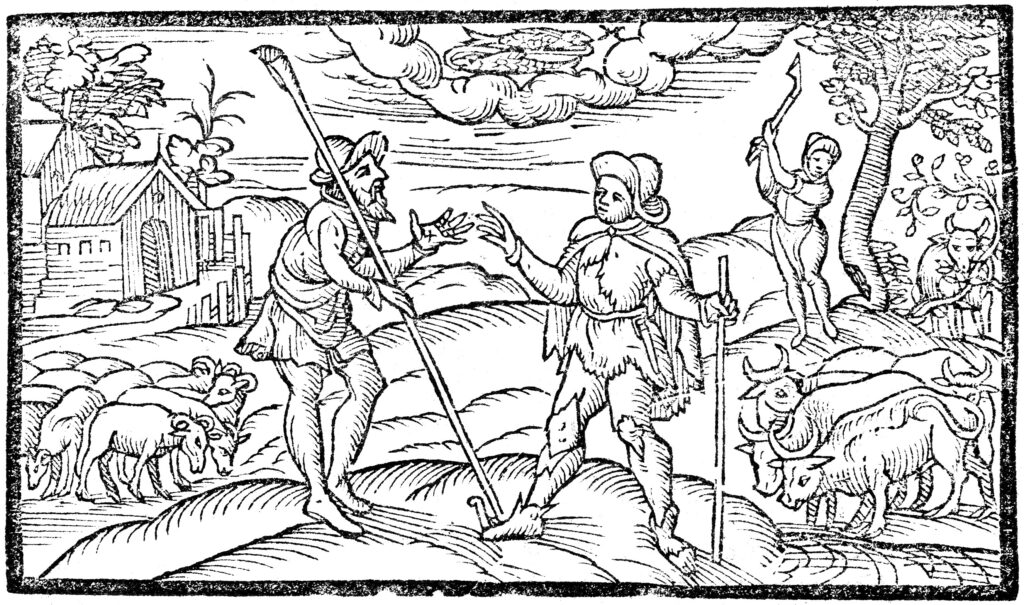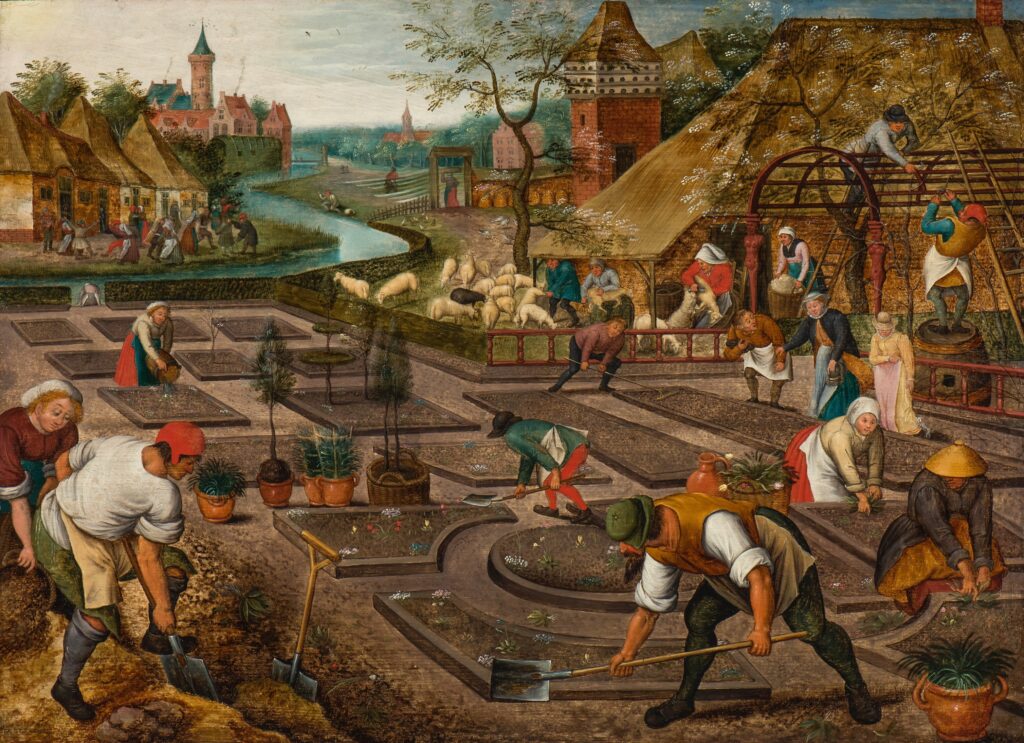What exactly do we mean by “peasant ways”? We realize that the term “peasant” can be quite a loaded term and conjures up different imagery in different people’s minds. Therefore, we thought it proper to clarify what we mean by that. We want to demonstrate how peasant ways are dynamic and unique to whatever time period, adapting and using what is available to them, whilst remaining firmly anchored to their living cultural roots.
At its most simple definition, “peasant” means a farmer, a homesteader. Most people today will tack on associations to this term of the peasant lives being dull, hard and brutish. In an age obsessed with class warfare, people may also associate the term “peasant” with “oppressed”.

Contrarily, in my family, we view the term “peasant” as the basic building block of human culture itself and the very origin of nobility in Man’s vocation. In Genesis, God planted a Garden in the centre of His Creation. He created Man to “tend and protect” this Garden. Therefore, we know that Man was created to have a direct connection with the land. In short, Man was created to be a farmer–a peasant. Also in this good and beautiful, newly-created world, we see an inherent nobility in this primordial vocation of Man.
As Roman Catholics, this is what we believe. We realize, dear readers, that many do not share our beliefs. Nevertheless, many of us can at least agree on a simply natural level, that humans have a deep desire to be directly connected with the land. That fact is becoming very clear, as our technology-crazed society leaves more and more folk yearning to rediscover that connection.

There is no doubt that there is a growing trend for going “back to the basics”. Younger folk, who never grew up being taught how to garden, or preserve, or butcher or brew are now feeling the urge to rediscover these most basic of skills. The real irony of the modern Western culture is that only a generation or two previously, such skills were so mundanely common and viewed in anything but a romantic light. They were utterly basic, necessary for survival. Life was tough, and it bred tough folk. We cannot blame them for taking the opportunities offered to them that new technologies suddenly made available. Indeed any opportunity to improve quality of life was taken more in consideration for their children, if not their own.
Nevertheless, we of the later generations are realizing many of the unfortunate effects of industrialized “progressivism”. Now, looking back, we notice the loss of culture. Loss of language, skills and knowledge that was handed down and re-adapted to every new generation resulted also in a sort of loss of a sense of dignity in modern man. Thus, rather than jumping on the progressive bandwagon for the latest-greatest, the peasant ways movement are an attempt to grasp at something that we have lost. We realize that maintaining and cultivating a connection with our past and our land is wired into our very nature.
If you look at the “peasant ways” of our ancestors, you will notice that there is an element of timelessness to them. Right up to the first half of the 20th century, there were customs, methods, tools, language and clothing that had stemmed and grown from hundreds, if not thousands of years of seamless tradition. Whatever change these cultural elements underwent through the ages is likened more to a tree undergoing change by growing. Contrast this to the change of the more recent past that is defined, for some reason, by a need to break off, rebel and overturn a continuity with tradition.
In living out our “peasant ways” we draw much of our inspiration from the past. But that is not because we want to go back in time to the “good old days”. We can’t bring the past back, and we remain firmly in the 21st century, with all its unique advantages and problems. But again, as a tree draws its nourishment and security from its roots, so do we wish to maintain a similar relationship with our cultural roots.

